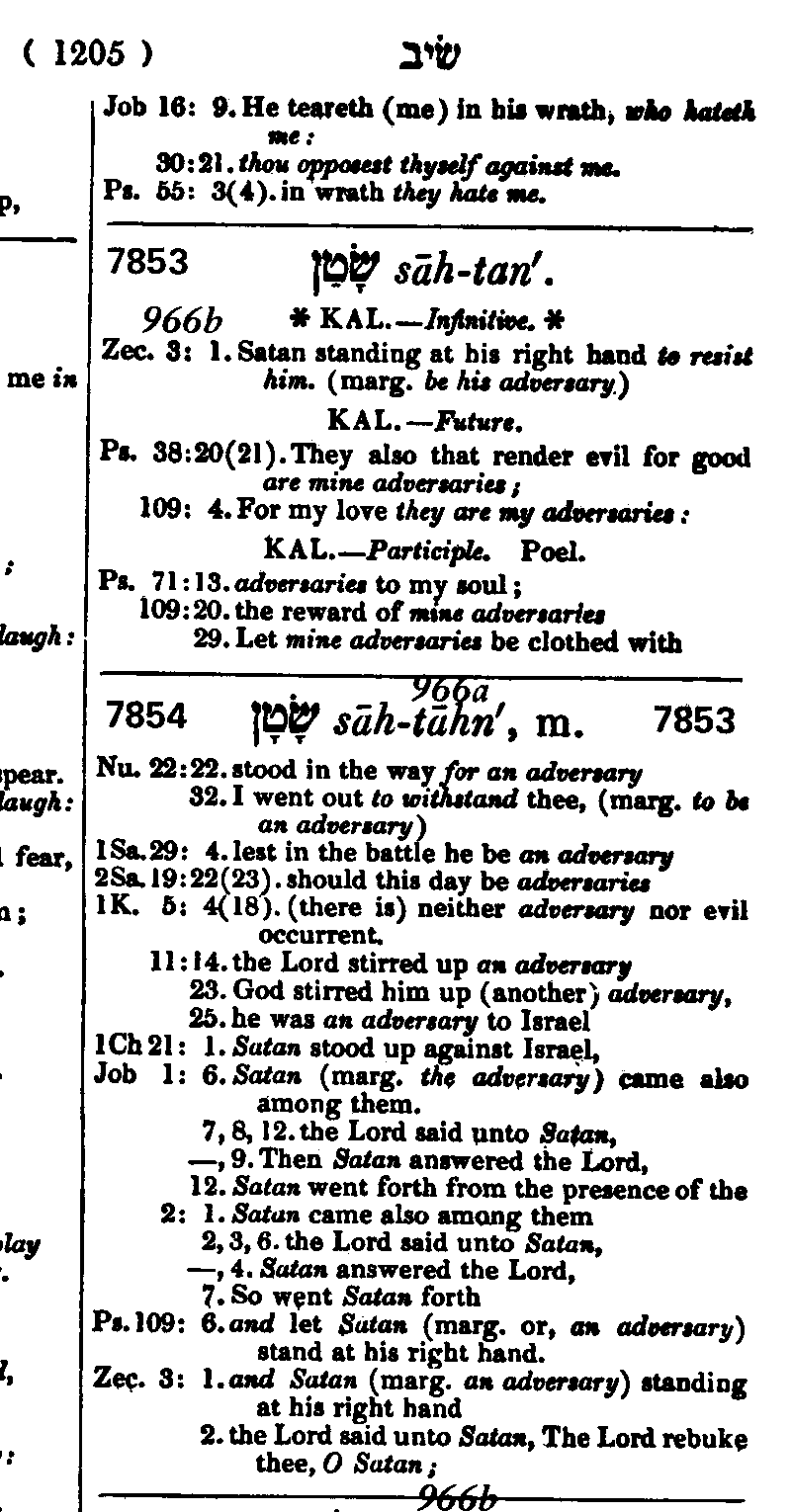Satan in the Hebrew Scriptures It is a little know fact that the word "Satan" is an untranslated word. It is not an English word. Instead, it comes from the Hebrew, from which it has passed into Greek and thence into English. The word simply means an adversary, as will be evident to the simplest reader from the following instances of its use: "The Lord stirred up an adversary (A SATAN) unto Solomon, Hadad the Edomite" (1 Kings 11:14). "Lest in the battle, he (David) be an adversary (A SATAN) to us" (1 Samuel 29:4). "There is neither adversary (SATAN) nor evil occurrent" (1 Kings 5:4). A complete list of all the places in the Old Testament where this word occurs can be found by using a Hebrew concordance, such as The New Englishman's Hebrew Concordance. Such a concordance is unique in that rather than indexing words in English it indexes the original Hebrew words, followed by all of the instances where the words can be found in the Hebrew scriptures. This does require that the user be familiar with at least the Hebrew alphabet. This type of concordance is useful in revealing instances where the English translator has not been consistent. An example is found in respect to this Hebrew word "satan". In the image below, the reader will find two sections prefixed by the numbers 7853 and 7854 (which are Strong's Concordance numbers). There you will find all of the instances in the Hebrew scriptures where this Hebrew word "satan" occurs. In 13 out of 30 instances the Hebrew word "satan" is translated into our English words "adversary" or "adversaries". In these 13 instances the reader would have no clue that the original word behind these translations is the Hebrew word "satan". Interestingly, in each of the remaining 17 instances the marginal reference gives "adversary" as an alternative translation! But if one was to group these 30 instances where the Hebrew word "satan" occurs into distinct passages, you would find 14 distinct passages; and of these 14, only in 5 have the translators chosen to leave the word untranslated (i.e, as "Satan"). This means that in nearly two-thirds of the passages the King James translators have translated the Hebrew "satan" to English as "adversary". In other words, linguistically a case can be made for the English "Satan" to be removed completely from our English Bibles and replaced with "adversary." Young's Literal Translation has in fact done just that! And with the more popular modern English translations a single instance of this has already occurred. You will discover this when you compare Psalm 109:6 in the NIV, ASV, NAS, RSV and even in the New King James with the classic King James of 1611: KJV: Set thou a wicked man over him: and let Satan stand at his right hand. {Satan: or, an adversary} ASV: Set thou a wicked man over him; And let an adversary stand at his right hand. NIV: Appoint an evil man to oppose him; let an accuser stand at his right hand. NAS: Appoint a wicked man over him; And let an accuser stand at his right hand. RSV: Appoint a wicked man against him; let an accuser bring him to trial. NKJ: Set a wicked man over him, And let an accuser stand at his right hand.
For more on this topic see also:
Compiled by:iPhilipi P. Kapustaii |

